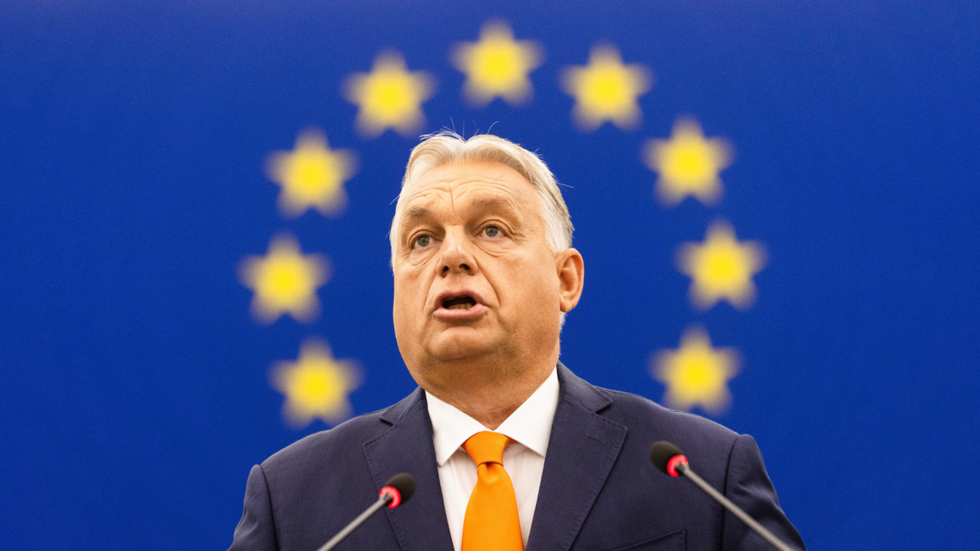Kremlin foe Alexei Navalny started writing his posthumously released memoir “Patriot” while recovering from a nearly fatal nerve agent poisoning in Germany.
Eventually incorporating his prison diary, the book provides new insights into his early life and political career, as well as the conditions he faced in the months leading up to his death in prison, his diary entries becoming less frequent and more sparse as his living conditions deteriorated.
Here are five takeaways from the book:
A Chernobyl Childhood
Though he grew up moving between military towns near Moscow, Navalny regularly visited his father’s family in Zalesiye, Ukraine — a “paradise on earth” village close to Pripyat and the Chernobyl nuclear power plant. He was even baptized in secret at a church in the city.
Navalny credited the Chernobyl disaster — which happened when he was 10 years old — with shaping his early conception of politics by demonstrating the personal impact of the Soviet government’s secrecy and corruption.
This skepticism of authority continued into his education. Navalny excelled in history and literature — fueled by his love of reading — but was regularly punished for bad behavior. Despite not fighting with his classmates or damaging school property (although in his spare time, he enjoyed making small explosives from discarded ammunition he found in the woods) he tested teachers’ patience by constantly making jokes and correcting them, sometimes escalating into arguments that required his parents to be called in.
Seeing the Forest and the Trees
In 2009, President Dmitry Medvedev chose Nikita Belykh, the leader of the Union of Right Forces party (UNF), to be the governor of central Russia’s Kirov region. Kirov was a poor and undeveloped region, mostly covered by forests.
Belykh, who had previously unsuccessfully run for a State Duma seat, decided to accept the position with the intention of carrying out a democratic experiment in the region.
Navalny described himself and Belykh as “kind of friends,” and so Belykh invited Navalny along in an advisory role to combat corruption.
The experience shaped Navalny’s understanding of politics in Russia.
His first realization was that Russia’s governors had little real power, as the Kremlin’s envoys in each region were the ones pulling the strings.
Secondly, he found that “in a corrupt environment, you are forced to behave corruptly, even if all you want is to help people.
“Before you know it, you find yourself behaving in corrupt behavior from morning to night. And if you are behaving corruptly for the benefit of someone else, why would it not be okay to do a little bit of the same for yourself? The system swallows you,” he wrote.
Years after Navalny worked for him, Belykh was sentenced to eight years in prison for bribery.
In Kirov, Navalny decided to take on a state-owned logging company called Kirovles. He was able to get the company’s director fired, as well as organize an audit by one of the Big Four accounting firms into the company’s practices. A few months later, the director was reinstalled and the audit canceled.
In 2012, Russian authorities accused Navalny of embezzling 16 million rubles (around $500,000 at the time) from Kirovles. In his words, the authorities said to themselves: “Ohh, he thinks he can fight against our corruption? Well, we’ll just say he’s corrupt himself.”
The Kremlin Walks Back on Itself
Navalny recounts several occasions in which the authorities were far too repressive, realized their error, and then backtracked in the face of public pressure. But in all of these instances, one can see the Kremlin’s threshold of repression get more and more extreme.
Navalny and businessman Peter Ofitserov were convicted in the Kirovles case and received four and five-year sentences, respectively. The two were transferred to prison and processed, but abruptly released the next day after being told the Prosecutor’s Office had filed an appeal.
After the original sentencing, tens of thousands of people went to the streets to protest in central Moscow. In response, the Prosecutor’s Office asked that the sentences be reduced. In Navalny’s words, the popular uprising forced the Kremlin to back down.
In April 2017, Navalny was attacked with zelyonka (a bright green antiseptic) a second time and lost sight in his right eye. To save his vision, he would have had to travel to Spain. However, authorities had refused to issue him a passport for six years.
Law enforcement also refused to open a criminal case against the perpetrators, despite the attack being carried out on camera and details about the attackers being known.
Again, the Kremlin reversed course after seeing the public outcry, and Navalny was issued a passport to save his sight.
In perhaps the most famous example, the Kremlin allowed Navalny to be transported to Charité hospital in Berlin after his poisoning after days of intense public pressure — something for which makes sure to thank former German Chancellor Angela Merkel.
Brave Nerds Will Save the World
“I firmly believe that all the best things on earth have been created by brave nerds.”
Just that. On the wall of his office, Navalny had a photograph from the 1927 Solvay Conference on Physics, which brought together some of the world’s leading scientists to discuss the newly formulated quantum theory. Albert Einstein, Marie Curie, Erwin Schrödingher, and 14 other Nobel Prize winners attended.
There Are Humans in the Prison System, Too
Despite the inhumane treatment and torture he received at the hands of the Russian penitentiary system, Navalny often found the humanity in the people around him.
In one episode, Navalny jokingly asks the officers in the police van where they are taking him. From his brother Oleg’s experience in prison, Navalny knew that although they were not allowed to tell him, they might whisper the destination “to no one in particular.” This time, they smiled and looked at the body cameras on their chests, as if to signal that they would tell him, but could not.
Later, Navalny laments unfairly badmouthing prison guards who he had accused of stealing his notebook.
“I feel a bit ashamed. It is Stockholm Syndrome of course,” he said. “Here I am, innocent, and worrying about the feelings of the camp guards. But on the other hand, there is such a thing as emotional intelligence.”
In another journal entry, he recounts what he called “the kettle drama.” In his unit, there is only one old barely working kettle for boiling water, but prisoners aren’t supposed to use it because of a problem with its wiring.
One morning, Navalny put water in the kettle, turned it on and left the kitchen. The night trustee (a prisoner who is close to the prison administration) chastised him for leaving, saying it could catch fire, to which Navalny responds by joking, setting the trustee off even further.
But upon further reflection, Navalny realizes that he was in the wrong. That if he were to break the kettle, or if it were to catch fire, they would be left without a way to boil water for months. “I have shown myself to be an insensitive person of low emotional intelligence. I need to have a chat this evening with Zhenya,” he wrote.
One piece of advice he gives to his colleagues is to find religion. Throughout the book, Navalny evokes his Christianity as an integral part of his identity and as a way for him to cope with the world around him.
He does not mean zealotry, or that everyone should believe every word of the Bible. But he believes that “faith makes life simpler,” that believing in a religion whose central figure sacrificed himself for others, in the immortality of the soul and in divine providence all make it easier to live a life devoted to a cause as dangerous as his.
A Message from The Moscow Times:
Dear readers,
We are facing unprecedented challenges. Russia's Prosecutor General's Office has designated The Moscow Times as an "undesirable" organization, criminalizing our work and putting our staff at risk of prosecution. This follows our earlier unjust labeling as a "foreign agent."
These actions are direct attempts to silence independent journalism in Russia. The authorities claim our work "discredits the decisions of the Russian leadership." We see things differently: we strive to provide accurate, unbiased reporting on Russia.
We, the journalists of The Moscow Times, refuse to be silenced. But to continue our work, we need your help.
Your support, no matter how small, makes a world of difference. If you can, please support us monthly starting from just $2. It's quick to set up, and every contribution makes a significant impact.
By supporting The Moscow Times, you're defending open, independent journalism in the face of repression. Thank you for standing with us.
Continue
![]()
Not ready to support today?
Remind me later.

 By The Moscow Times | Created at 2024-10-30 15:20:21 | Updated at 2024-10-30 17:29:19
2 hours ago
By The Moscow Times | Created at 2024-10-30 15:20:21 | Updated at 2024-10-30 17:29:19
2 hours ago



